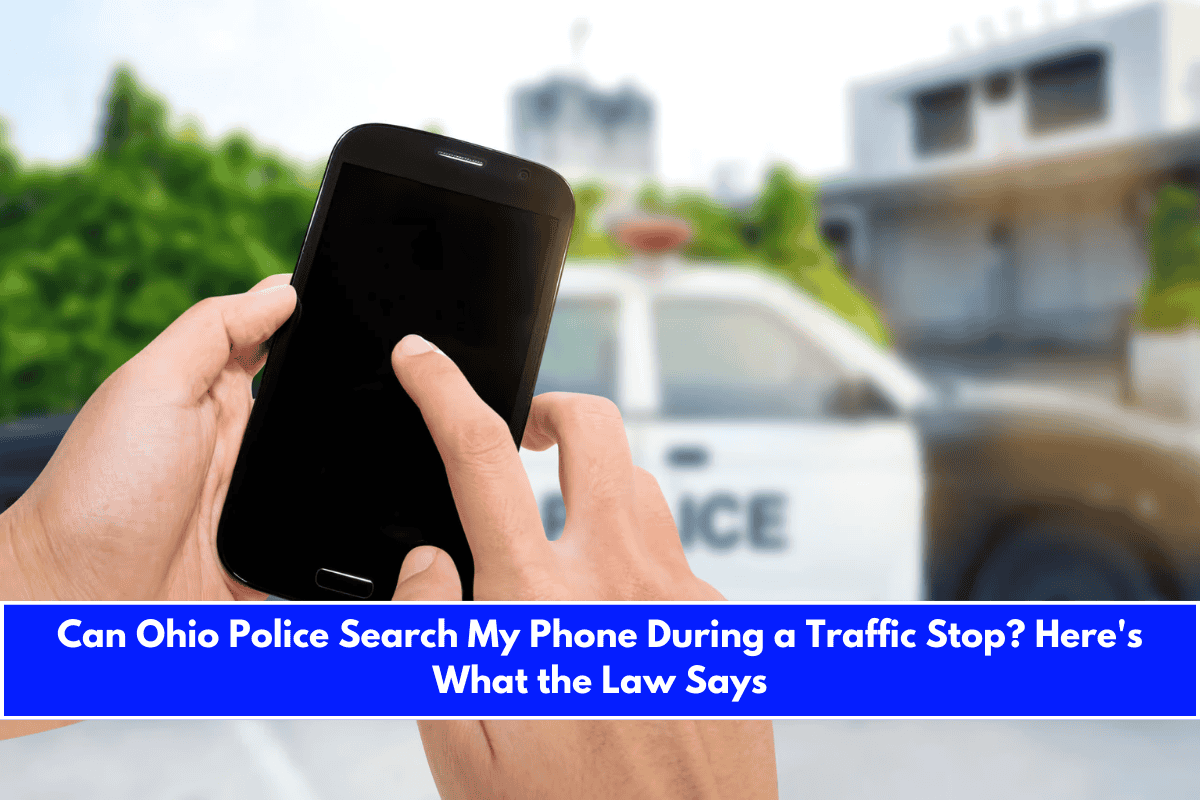In Ohio, police cannot search your phone during a traffic stop without a warrant or your explicit consent.
Both the Ohio Supreme Court and the U.S. Supreme Court have made it clear that the Fourth Amendment protects the contents of your phone from warrantless searches, recognizing the vast amount of personal data stored on these devices.
Unless there are immediate safety concerns or exigent circumstances, officers must obtain a warrant to access your phone’s data.
Exception: Consent
If you voluntarily give consent, police may search your phone without a warrant. However, Ohio law provides extra protections: during a traffic stop for distracted driving (e.g., texting while driving), officers are required to inform you that you have the right to refuse consent to a phone search.
Consent must be given voluntarily and unequivocally—officers cannot coerce, threaten, or use improper means to obtain it.
“The officer cannot coerce or force you to give consent to search your phone; the officer cannot use ‘any other improper means’ to obtain your consent… or open, search, or use your phone without a warrant unless the owner provides consent.”
If you do not want your phone searched, politely decline consent. If you do consent, be aware that a general “yes” grants broad access to your phone’s contents, unless you specify limits (e.g., “only my call log”).
Distracted Driving Stops: Special Protections
Ohio’s distracted driving law (texting while driving) specifically requires officers to inform you of your right to refuse a search. This is a higher standard than federal law and is designed to protect your privacy.
What If You Refuse?
If you refuse consent, police cannot search your phone unless they obtain a warrant based on probable cause that evidence of a crime is on your device. Officers may seize your phone while waiting for a warrant, but they cannot search it until the warrant is issued.
Summary Table: Ohio Police Phone Searches During Traffic Stops
| Scenario | Can Police Search Your Phone? |
|---|---|
| Routine traffic stop (speeding, expired tags) | No, unless you give consent or they get a warrant |
| Distracted driving stop (texting) | No, unless you give informed, voluntary consent or they get a warrant |
| You give voluntary, unequivocal consent | Yes, within the scope you allow |
| Officer has a warrant | Yes, as specified in the warrant |
Key Takeaways
- You are not required to hand over your phone or unlock it during a traffic stop.
- Police must have your voluntary, informed consent or a warrant to search your phone.
- If stopped for distracted driving, officers must tell you that you can refuse consent.
- If you believe your rights were violated, evidence from an illegal search may be inadmissible in court.
When in doubt, politely decline consent and ask if you are free to go.
Sources:
- https://www.rittgers.com/blog/2024/09/does-ohios-distracted-driving-law-allow-police-officers-to-search-my-phone/
- https://www.courtnewsohio.gov/cases/2014/SCO/cellphonesCase_071514.asp
- https://www.koffellaw.com/blog/ohio-supreme-court-ruled-on-cell-phone-searches/
- https://www.govtech.com/public-safety/can-police-search-your-phone-during-a-traffic-stop
- https://www.davidyannetti.com/articles/do-i-have-to-give-police-access-to-my-phone-during-a-traffic-stop/











Leave a Reply